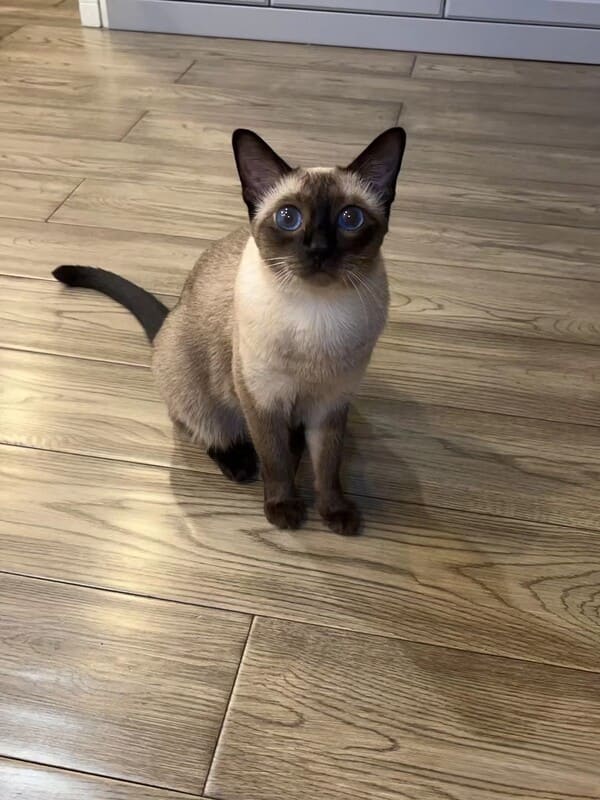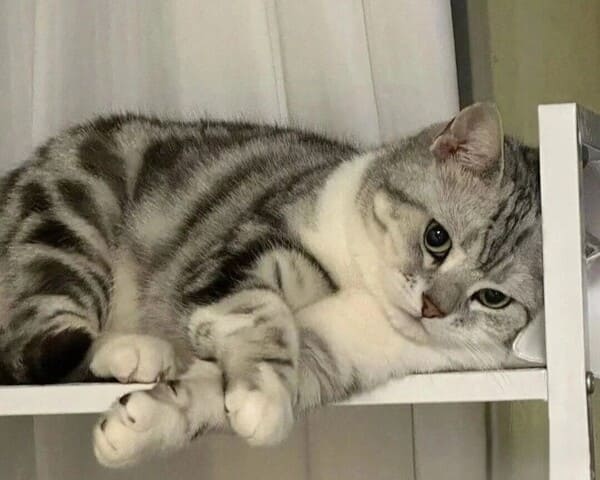When facing the difficult situation of a dying cat, many pet parents wonder about their other cats’ emotional response. The answer is yes – cats are remarkably perceptive and can often sense when their feline companion is nearing the end of life. Understanding how cats process and respond to loss can help us better support them during this challenging time.
Enhanced Sense of Smell Reveals Changes
Cats possess an extraordinary sense of smell that allows them to detect subtle changes in their companion’s condition. When a cat is ill or dying, their body chemistry changes, producing different scents that other cats can detect. Your cat might spend more time sniffing their sick sibling or show unusual interest in their resting areas. This behavior indicates their awareness of these biological changes.
Increased Attention and Protective Behavior
Many sister cats will display remarkable changes in how they interact with their dying brother. You might notice your cat becoming more protective or attentive towards their sick sibling. This can manifest as sleeping closer to them, grooming them more frequently, or even standing guard near their resting place. This protective behavior stems from their strong sibling bond and natural instinct to care for family members.
Changes in Daily Routine
When a cat senses their sibling is dying, they often exhibit significant changes in their own daily patterns. Your cat might abandon their usual routines and create new ones centered around their sick sibling. They might skip their favorite sunbathing spot to stay close to their brother, or change their sleeping schedule to match their sibling’s reduced activity.
Vocalization Changes
The way your cat communicates might change noticeably during this time. Some cats become more vocal, making unusual sounds or crying more frequently. Others might become unusually quiet. These vocalization changes often reflect their emotional response to their sibling’s condition. You might notice them making soft, gentle sounds when near their sick sibling that they don’t typically use.
Signs of Anxiety or Stress
Watching a sibling decline can cause significant stress for your cat. Common signs of feline anxiety include: excessive grooming, changes in appetite, restlessness, or unusual aggression. Your cat might also show physical symptoms like reduced appetite or changes in their bathroom habits. These reactions are normal responses to the stress of sensing their sibling’s decline.
Grieving Behaviors After Loss
When a cat loses their sibling, they often go through a period of grief. Understanding that cats do grieve and need time to process their loss is crucial for helping them cope. Some cats might search for their lost companion, while others might become more clingy with their human family members. This grieving period varies for each cat and deserves patience and understanding.
Real Stories of Feline Grief
Oscar’s Story of Lost Appetite
A cat parent named Emily shared a touching story about her cat’s grief. After losing his companion Tommy, who had lived with them for 5 years, Oscar displayed heartbreaking signs of mourning. “Oscar had always been absolutely crazy about wet food. He would come running at the mere sound of a can opening. But after Tommy passed away, he completely lost interest in his favorite food,” Emily recalls. “Even with his favorite salmon-flavored food, I had to force-feed him by gently opening his mouth.”
The veterinary examination confirmed that Oscar was physically healthy, and these behavioral changes were purely emotional responses to losing his companion. “The day I finally saw Oscar voluntarily eating from his food bowl again, I almost cried.” This concerning behavior lasted for nearly two months, until Emily welcomed a new Persian cat into their family. Only then did Oscar gradually return to his normal eating habits.

Mimi’s Search for Her Lost Brother
Another touching account comes from a cat parent who shared her experience with her cat Mimi’s grief. After seven years of living together, Mimi’s brother Lucky passed away due to illness. “Lucky’s favorite spot was always the rattan chair on the balcony where he would sunbathe. After he was gone, Mimi would spend hours sitting in that exact spot, as if waiting for him to return,” his owner shared.

Even more heart-wrenching was the change in Mimi’s eating habits. “She used to enthusiastically devour her cat treats, but after Lucky’s passing, she would only eat half and leave the rest – as if saving it for her brother.” During the first week after Lucky’s passing, Mimi barely ate anything and became noticeably withdrawn. Despite veterinary checks confirming she was physically healthy, she was clearly mourning the loss of her brother.
These real-life experiences demonstrate how deeply cats can be affected by the loss of a companion. Their grief can manifest in various ways, from changes in eating habits to seeking out places associated with their lost sibling. Understanding these natural grief responses can help us better support our cats through their mourning process.
Supporting Your Grieving Cat
During this difficult transition, providing extra support for your surviving cat is essential. Maintain consistent daily routines while offering additional attention and comfort. Some cats might need more private space, while others seek extra cuddles and reassurance. Watch for signs of depression or prolonged grief that might require veterinary attention.
The Power of Time and Patience
Every cat processes loss differently, and there’s no set timeline for adjustment. Some cats might seem to bounce back quickly, while others need more time to adapt to their new normal. What matters most is providing a stable, loving environment where your cat feels safe to process their feelings.
Remember that your surviving cat needs extra support both before and after losing their sibling. While they may not show grief in ways we humans expect, their emotional bond with their sibling is real and meaningful. Understanding and acknowledging their grief while providing consistent support will help them navigate this difficult transition.
As you support your surviving cat through this transition, you might find comfort in creating a memorial or writing a tribute poem to honor your departed pet. Many pet parents find that these activities help both them and their surviving pets process their grief.
Related:
Common Questions About Feline Grief
Q: How long will my surviving cat grieve?
A: The grieving process varies for each cat. Some may show signs of grief for a few days, while others might take several months to adjust. Pay attention to your cat’s behavior and consult a veterinarian if signs of depression persist beyond a few weeks.
Q: Should I get another cat to keep my grieving cat company?
A: Wait until your surviving cat has processed their grief before introducing a new companion. This typically takes at least a few weeks to several months. When you do decide to adopt another cat, make sure to introduce them gradually and carefully.
Q: Why does my cat keep looking for their deceased sibling?
A: Searching behavior is a normal part of the grieving process. Cats don’t understand death in the same way humans do, and they may continue looking for their companion for some time. This behavior usually diminishes gradually.
Q: How can I tell if my cat is depressed or just grieving?
A: While grief and depression can look similar, prolonged loss of appetite, aggressive behavior, or excessive sleeping beyond a few weeks may indicate depression rather than normal grief. Consult your veterinarian if you’re concerned about your cat’s behavior.



